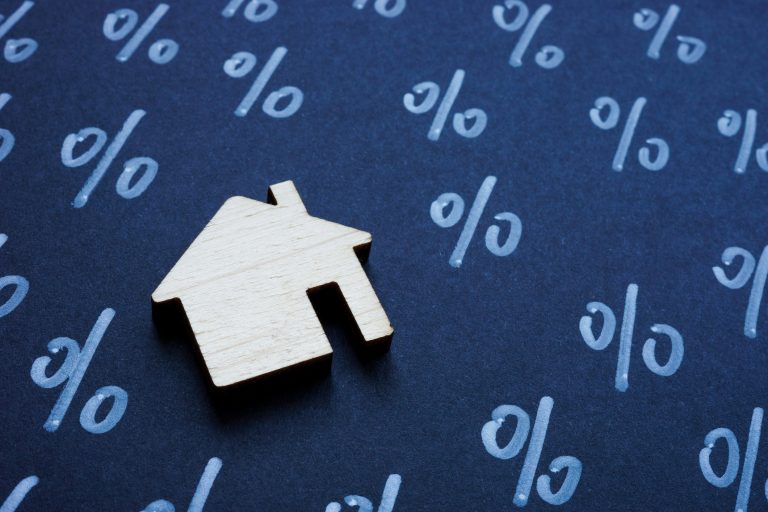One pivotal decision you’ll make when securing a mortgage is choosing between a fixed and a variable rate. This choice influences your monthly payments and the total interest paid over the loan’s term. Understanding the nuances and advantages of each option relative to your situation is essential for making the right decision!
Fixed-Rate Mortgages
Put simply, a fixed-rate mortgage maintains a constant interest rate throughout the loan term. This predictability ensures consistent monthly payments and simplifies budgeting. In addition to aiding in long-term budgeting, borrowers are insulated from potential increases in interest rates during that term. These are the main reasons people choose a fixed mortgage — you know what you’ll be paying and can set it and forget it!
| Fixed Pros | Fixed Cons |
|
|
Variable-Rate Mortgages
Variable-rate mortgages, also known as adjustable-rate mortgages, have interest rates that fluctuate based on market conditions. They typically start with a lower rate, which can change at specified intervals, affecting monthly payments. Although variable mortgages have historically offered cost savings, the post-pandemic economic environment has presented challenges for Canadians whose monthly mortgage payments rose quickly alongside interest rates.
| Variable Pros | Variable Cons |
|
|
Factors Influencing Mortgage Rates
Both fixed and variable mortgage rates are influenced by several key factors that shape borrowing costs. Economic conditions, central bank policies, and lender-specific decisions all affect the rates available to homebuyers.
- Bank of Canada Policy Rate: The central bank’s benchmark rate directly affects lending rates. As of April 16 (2025), the Bank of Canada chose to maintain its target for the overnight rate at 2.75% (which had been lowered from 3% in mid-March).
- Economic Indicators: Inflation rates, employment figures, and economic growth influence interest rate decisions. For instance, rate hikes may be taken to help control inflation or be held due to uncertainties caused by current tariff discussions.
- Lender’s Prime Rate: Financial institutions set their prime lending rates based on the central bank’s rate and their operational costs, affecting variable mortgage rates.
Making the Right Choice
Selecting the right mortgage type depends on more than just interest rates. Your financial stability, risk tolerance, and long-term plans should all be considered to ensure your mortgage aligns with your financial goals.
Risk Tolerance
A fixed-rate mortgage may be more suitable if you prefer stability and predictability. Conversely, a variable-rate mortgage could be advantageous if you’re comfortable with potential fluctuations and aim to capitalize on possible rate decreases.
Economic Outlook
Anticipating future interest rate trends is challenging but also crucial. If rates are expected to rise, locking in a fixed rate might be beneficial. However, if rates are projected to decline or remain stable, a variable rate could result in savings.
Financial Flexibility
Consider your ability to handle potential payment increases. Ensure you have the financial cushion to accommodate higher payments if variable rates rise. Even if you have a fixed rate and interest rates rise, having a cushion or being able to save will be valuable come renewal.
Mortgage Terms & Plans
Your long-term plans, such as the duration you intend to stay in the property or potential life changes, will definitely influence your decision. If you plan to move or refinance soon, a variable rate might offer more flexibility. Everyone’s situation is different and needs consideration.
Recent Trends & Considerations
The mortgage landscape constantly evolves due to shifts in interest rates, economic changes, and international events. Staying informed about recent developments can help homeowners and buyers make better financial decisions.
- Interest Rate Cuts: The Bank of Canada’s most recent rate reduction to 2.75% was aimed at stimulating economic activity. Cuts like these, especially a trend of rate cuts, can make variable-rate mortgages more attractive due to potential decreases in borrowing costs.
- Market Responses: Following rate cuts, some homeowners might consider switching from fixed to variable-rate mortgages to capitalize on lower rates. Likewise, when people experience lots of market volatility and cost changes, this tends to heighten the desire for something more predictable… or fixed! It is essential to weigh your options and the long-term implications.
- Economic Uncertainty: Global economic factors (such as tariffs and trade conflicts) can introduce volatility. In uncertain times, the predictability of fixed-rate mortgages might offer peace of mind, especially if you foresee yourself being impacted by potential changes.
Choosing between a fixed-rate and variable-rate mortgage is a significant decision that hinges on personal circumstances, financial goals, and market conditions. While fixed-rate mortgages provide stability and predictability, variable-rate mortgages offer potential savings and flexibility. It’s crucial to assess your risk tolerance and consult with mortgage professionals to determine which is best for your situation.
If you’re navigating the Ottawa real estate market and need expert guidance on choosing the right mortgage, reach out to Top Ottawa Homes. Our team is here to provide personalized advice and help you secure the best mortgage solution and provider for your needs.
Contact us today to start your journey toward homeownership with confidence. Top people, top results, Top Ottawa Homes!



